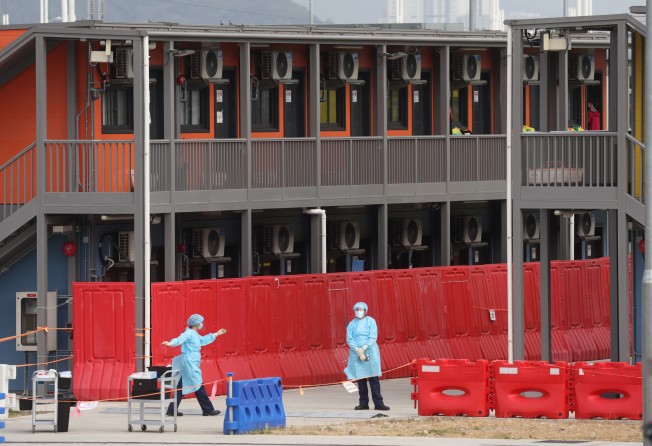Why Hong Kong’s 21-day quarantine policy seems unscientific
- Readers question the scientific justification behind Hong Kong’s 21-day quarantine and discuss the pros and cons of a vaccine passport system

I don’t see much scientific justification to support the current 21-day quarantine policy mandated in Hong Kong. However, I would like to thank the powers that be for the opportunity to be required to spend 21 days in quarantine in Hong Kong.
This provided me with the chance to do some data analysis and the time to think this through. However, after reviewing the facts I collected, I couldn’t find any scientific evidence supporting the 21-day quarantine policy.
The Hong Kong government requires those entering the city from countries deemed “high risk” to undergo 21 days of quarantine in a hotel on a government list. This “high risk” list now includes almost every major country in the world. Those arriving from these “high risk” countries undergo PCR tests daily in quarantine for the first seven days.
According to Centre for Health Protection, the incubation period for this virus ranges “from one to 14 days, most commonly around five to six days”. We now know that the virus can spread – and therefore be identified by a test – before symptoms appear.
Given that a passenger to Hong Kong has taken one PCR test before and after the flight and assuming both results are negative, the most likely chance of an imported confirmed case is among passengers at the early stage of the incubation period. Therefore, I completely support performing more tests during the quarantine period to identify potential positive cases.
However, it seems there is little scientific reason for the government to enforce quarantine of more than 14 days since sufficient testing will be able to identify all the cases based on what we know about the virus.
I have performed a quick analysis of the data from December 15 to 30. What I found is under the current testing mechanism, the average number of days between the arrival date and the date of a confirmed case being detected was 2.6. There were only three cases identified between Day 7 and Day 14. None were identified from Day 15 to 21 of the quarantine period, except for one case of a sea crew member identified on Day 15, but the testing protocol for these crew might be different.
There are studies which argue against quarantine of more than 14 days. The Hong Kong government should ensure its policy is more in line with scientific facts instead of the preferences of government officials.
R. Zeng, Sai Wan
Consult the public on introducing vaccine passport
I refer to the proposal to introduce vaccine passports in Hong Kong (“Enough carrots, time for the stick: Hong Kong experts argue for tougher approach to boosting Covid-19 vaccination rate”, January 1).
There are both pros and cons to introducing a vaccine passport scheme. On the positive side, barring the unvaccinated from restaurants, workplaces and even schools, as leading pandemic adviser Professor Yuen Kwok-yung has suggested, could help boost the vaccination rate and ensure more people are protected from the serious health impacts of contracting Covid-19.
A high vaccination rate would also help prevent the widespread transmission of the virus in the community. If a large proportion of the population is vaccinated, we could see the end of the mask mandates. We could ease border restrictions and see more tourist activity boosting the economy, including local businesses.
However, requiring people to get vaccinated to access basic services could infringe on their human rights. People should have the right to freely choose whether they wish to undergo medical intervention, including vaccination. Those with chronic diseases are concerned about the side effects of the vaccine.
Have we also considered what the economic and social impact of the unvaccinated being unable to access many places, such as shops and restaurants, might be?
Given the serious socioeconomic impact of vaccine passports, perhaps a public consultation could be held to gauge public opinion on such a scheme.
Stephanie Ma Yuen-ming, Hung Shui Kiu